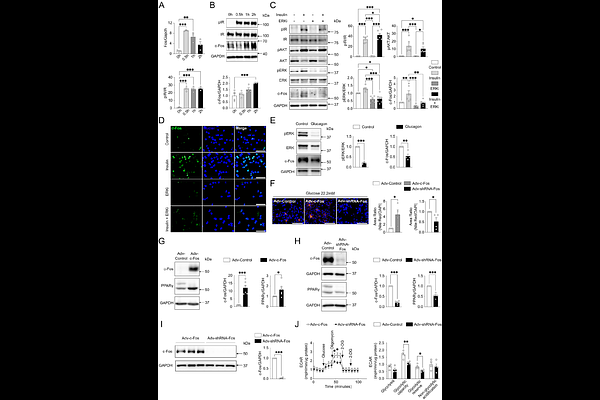Feeding induces c-Fos in hepatocytes contributing to hepatocellular carcinoma in obesity

Feeding induces c-Fos in hepatocytes contributing to hepatocellular carcinoma in obesity
Li, A.; Gilglioni, E. H.; St-Pierre-Wijckmans, W.; Hosseinzadeh, L.; Veyrat-Durebex, C.; Singh, S. P.; Coppari, R.; Bakiri, L.; Gurzov, E. N.
AbstractThe transcription factor c-Fos plays an important role in hepatic metabolism; however, its role in metabolic dysfunction-associated steatotic liver disease (MASLD) and hepatocellular carcinoma (HCC) is unclear. Here, we show that hepatic c-Fos is induced by insulin after feeding and suppressed by glucagon during fasting in chow-fed mice. In lean mice, adenovirus-mediated c-Fos ectopic expression in the liver is sufficient to cause insulin resistance. In diet-induced obesity or after ectopic expression in hepatocytes, c-Fos promotes MASLD progression by altering PPAR signaling and fatty acid metabolism pathways. Mechanistically, c-Fos drives glycolysis, stress-associated MAPK, and insulin-related PI3K-Akt signaling, exacerbating metabolic dysregulation. In HCC, c-Fos expression correlates with PI3K-Akt, MAPK, and calcium signaling pathways activation. Moreover, c-Fos siRNA knockdown in human liver cancer cells reduces proliferation and increases apoptosis under lipotoxic or ER stress conditions. These findings identify c-Fos as a critical mediator of liver steatosis progression, linking hepatocyte signaling and metabolic reprogramming to liver dysfunction and tumorigenesis.